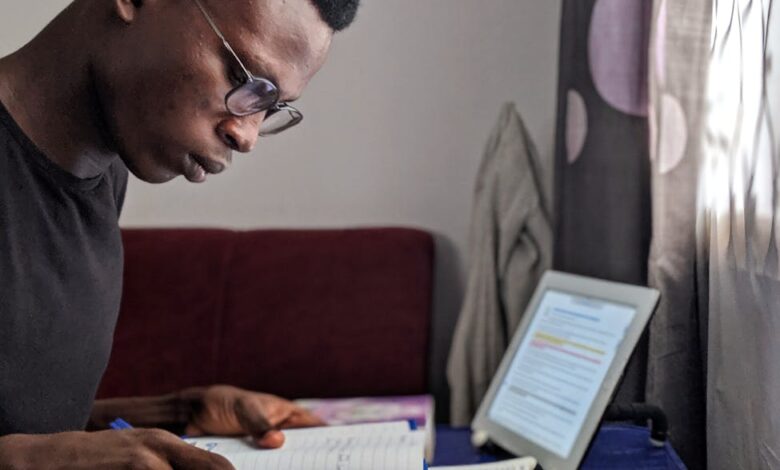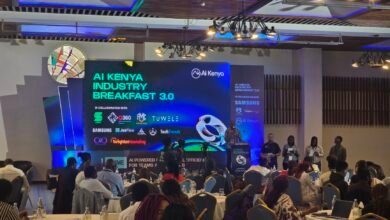
A major new report unveiled at the eLearning Africa Conference has issued a clear call to action: Africa’s education systems must embrace innovative digital learning solutions, overhaul policy frameworks, and scale what works—urgently. The study underscores that without targeted investments and forward-thinking strategies, the continent will fall short of producing the 23 million additional STEM graduates needed by 2030.
Titled “Leading Perspectives on the State of Digital Courseware in Low-Resource Countries”, the report was produced by the mEducation Alliance and the Spix Foundation, based on interviews with 41 officials, implementers, and experts from eight African countries: Kenya, Ghana, Rwanda, Malawi, Tanzania, Liberia, The Gambia, and Zambia.
A Continent with Only 2% Connectivity in Schools
The report paints a stark picture of the digital divide: in some countries, as few as 2% of primary schools are connected to the internet. Without intervention, this gap threatens to deepen inequalities in education access and quality.
Yet amid these challenges, the study surfaces a groundswell of grassroots innovations. From solar-powered tablets and localized content to offline-first servers and digital labs, these practical solutions are redefining what is possible, even in areas with minimal infrastructure.
“This research is critically important because it identifies both structural barriers and practical solutions that have proven effective across diverse African contexts,” said Anthony Bloome, Founder and Executive Director of the mEducation Alliance.
How Countries Are Responding
Despite infrastructure and funding constraints, governments and local innovators are making progress:
- Kenya’s Digital Literacy Programme (DLP) has reached over 20,000 public schools, trained 75,000+ teachers, and introduced interactive digital content aligned with the national Competency-Based Curriculum.
- Ghana, in partnership with Zambia, operates a Learning Management Platform (LMP) and Professional Learning Center, delivering pre-recorded lessons in English and Mathematics. Over 673,000 students accessed digital learning in 2023—up from 232,000 in 2020.
- Rwanda is designing a new edtech-specific policy and working closely with the World Bank to go beyond general ICT plans, signaling a move towards targeted educational technology strategies.
- Malawi’s BEFIT program uses a mix of low-end mobile tech, radio broadcasts, Raspberry Pi computers, and offline servers to deliver open educational resources across thousands of schools—often without internet.
Five Urgent Interventions Recommended
The report urges coordinated policy and investment across five key areas:
- Offline-First Digital Tools: Apps and devices must work without constant internet access, to reach rural learners.
- Open-Source Ecosystems: Countries need interoperable, flexible platforms that avoid costly proprietary lock-ins.
- Teacher Training: Professional development must include digital pedagogy and practical classroom strategies.
- Quality Standards: From accessibility for students with disabilities to local language support, courseware must be rigorously evaluated.
- Continental EdTech Standards: A harmonized framework across Africa could support scalability, compatibility, and shared innovation.
“The COVID-19 pandemic pushed practice ahead of policy. Mobile phones and social media were widely used for learning, yet formal policy frameworks still lag,” said John Kimotho, former Director at Kenya’s Institute of Curriculum Development. “We now need to codify what’s working.”
The Need for Localized, Inclusive Solutions
One of the most persistent challenges raised was the lack of localized, culturally relevant content. Informants stressed the importance of educational materials that reflect students’ lives, languages, and traditions. Projects like Ubongo’s cartoon-based content in Chichewa and Education Above All’s Internet-Free Resource Bank show how tailored content can improve engagement and learning outcomes—even without the internet.
However, content developers need sustainable funding. The report notes that while open educational resources (OERs) are crucial, compensating developers fairly is also vital to long-term digital education strategies.
A Warning and a Window of Opportunity
As the World Economic Forum projects a need for 23 million new STEM graduates in Africa by 2030, the pressure is mounting. Without significant expansion in affordable digital education, many African countries risk missing this mark.
The report calls on governments, donors, and the private sector to collaborate more deeply. Fragmentation, lack of interoperability, and weak data usage practices currently hold back progress. But shared standards, data privacy frameworks, and robust teacher support could unlock rapid growth.
“Africa has the ingenuity,” the report suggests. “What’s needed now is aligned action.”






